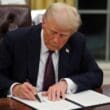Fed Yönetim Kurulu Üyesi Christopher Waller, Filistin ile İsrail arasındaki çatışmanın Fed politikasına olası etkisini değerlendirdi. Waller, Orta Doğu’daki gerilimin Fed politikasına doğrudan bir etkisi olmayacağına inanıyor.
Waller, Fed’in enflasyon hedefine ulaşma konusundaki kararlılığını vurgulayarak, gelecekteki faiz oranı artışlarını “bekleyip göreceğiz” şeklinde ifade etti. Ayrıca, ABD istihdam piyasasının Fed politikasına rağmen inanılmaz derecede dayanıklı olduğunu belirtti.
“Reel ekonomi iyi durumda ve işler yolunda gidiyor gibi görünüyor, ancak, Filistin-İsrail geriliminin Fed politikasına doğrudan bir etkisini tahmin etmek zor.”
Christopher Waller
Michelle Bowman: Para Politikasını Sıkılaştırmalıyız
Fed Guvernörü Michelle Bowman ise, enflasyonun yavaşlasa da hala yüzde 2’lik hedefin üzerinde olduğunu dile getirerek, Fed’in fiyat istikrarını sağlamak için para politikasını daha da sıkılaştırması gerektiğini savundu.
Bowman’ın Değerlendirmesi
Bowman, “Bu, faiz oranlarının daha da yükselmesi gerektiğini ve hedefe ulaşılana kadar sıkı bir politika izlememiz gerektiğini gösteriyor” şeklinde konuştu. Aynı zamanda enflasyonun ekonomiyi etkilediği konusunda endişesini dile getirdi ve Fed’in bunun üstesinden gelmek için aksiyon alması gerektiğini vurguladı.








